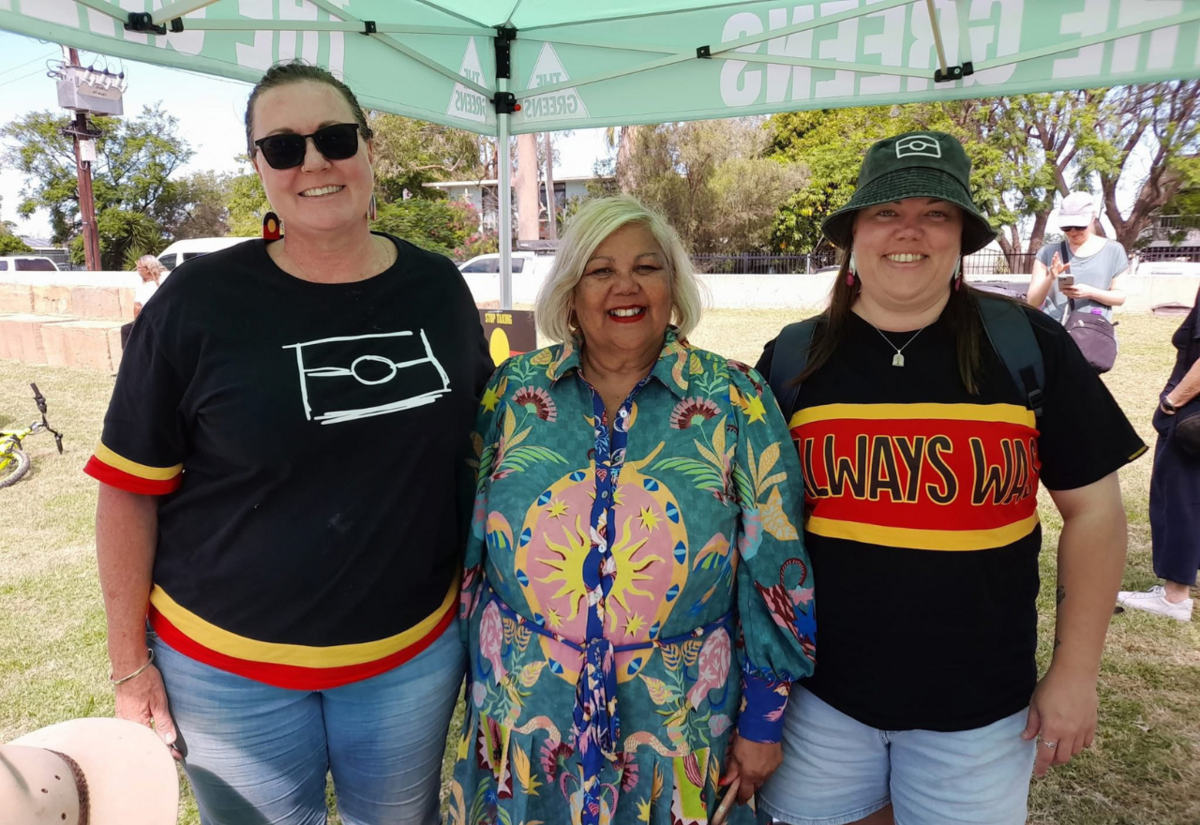Local Trish Frail fears for community over Justice Centre closures
Farren Hotham
26 May 2025, 9:20 PM
 Trish Frail, who campaigned in the Federal Election, pictured on the election trail with supporters. Photo: supplied
Trish Frail, who campaigned in the Federal Election, pictured on the election trail with supporters. Photo: suppliedThe closure of Community Justice Centres in Brewarrina and further west at Menindee will be devastating says local Trish Frail who is also a shire councillor in Brewarrina.
Designed as a prevention for those with minor crimes a judge would order a mediation without the need for the offender to have to go to court.
The Community justice Centres close June 30.
Ms Frail says its bitterly disappointing for her community.
"I have worked in the criminal justice in the area and a lot of cases were solved but I fear for many who commit minor crimes where jail is then the only option and indigenous people are over represented in our jails and mediation with their own did help," she said.
"Civil and simple matters will cost a lot for people to travel.
"I am surprised people in our community didn’t put up a big campaign and stand up and fight this closure," she said.
The Aboriginal Legal Aid Service who had earlier said they were deeply concerned about the failure of the bail system saying it let down communities declined to comment when contacted by the Western Plains App.
Trish Frail says The New South Wales Government want bigger jails.
"I think they want to build bigger super jails so without mediation in many cases young offenders will go the big house."
In December 2024 there were 4,114 Aboriginal adults in custody. They comprised 32.3% of the adult custody population - the highest proportion ever recorded.
Both the number of Aboriginal men (up 434 or 13.1%) and Aboriginal women (up 43 or 13.6%) increased from December 2022 to December 2024.
The increase in the prison population is mainly due to an increase in remand. In December 2024, the number of Aboriginal people held on remand in NSW was 1,877, up 28.8% since December 2022.
The most common offences for which Aboriginal adults were on remand were DV assault (404 or 21.5% of the remand population) and non-DV assault (331 or 17.6% of the remand population).
Both the number of Aboriginal adults proceeded against to court (up 3.4% or 1,145) and the number who were police and court bail refused has increased over the last year.
In the final quarter of 2024, police bail refusal rate increased to 40.8% (up 3.3 percentage points from 37.5% in Q4 2022) and the court bail refusal rate increased to 22.0% (up 2.1 percentage points from 19.9% in Q4 2022).

Solicitor Mercedes Castrikum
"These centres have served communities across the state for over 40 years, offering free mediation services for neighbourhood and civil disputes—without the need to go to court," Mercedes Castrikum senior principle at Castrikum and Adams said.
"CJCs have provided a vital public service, helping individuals resolve common issues like fence disputes, overhanging trees, noise complaints, and property access.
"In 2022–23, nearly 80% of neighbourhood disputes handled by CJCs were resolved successfully.
"This high success rate demonstrates just how effective informal mediation can be in preventing matters from escalating into costly and time-consuming litigation.
"With their closure, many individuals—especially those already experiencing financial hardship—may find themselves with no affordable path to resolve everyday legal disputes.
"Formal legal proceedings may now become the only option, increasing strain on the court system and placing additional stress on those involved."
Ms Castrikum involved in many Criminal Justice matters argues that the removal of CJCs will likely hit vulnerable and low-income residents the hardest.
"Without access to free mediation, disputes that could have been resolved in a matter of weeks may now stretch into months, costing significantly more and damaging relationships along the way.
"Mediation not only provides faster outcomes—it often helps preserve neighbourly and business relationships.
"This is especially important in small communities where parties must continue living or working in close proximity."



